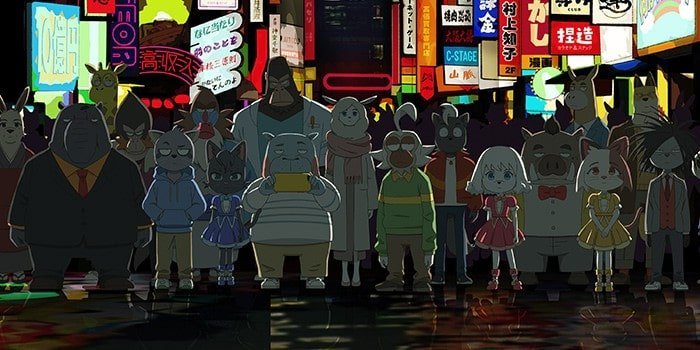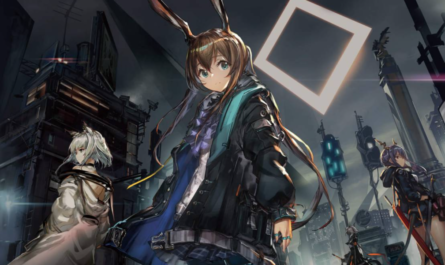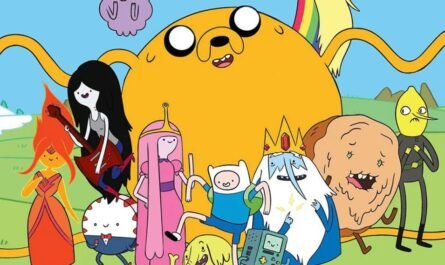When I was in my twenties, I watched late-night anime, but these days it’s gone. However, in the last few years, the video distribution service has been enhanced, and thanks to that, the chances of watching various animations have increased again.
So, this time about the “odd taxi” that I finally saw recently. As the name suggests, it is an anime with a taxi driver as the main character.
Actually, in the first episode, I once dropped out saying, “I don’t like it.” After that, if I was drinking at home and watching it alone when I was free, wouldn’t it be interesting? So, I hurriedly reviewed it from the first episode again. From there, it was a glance. It’s been a long time. I noticed that it was 5 am.
All the characters, including the main character Hiroshi Otogawa, are anthropomorphic animals in this anime. Otogawa, a walrus, is a 41-year-old man with a generous body who lives in a private taxi.
In addition, Taichi Kanazawa, a college student, is a pygmy hippopotamus, Kyohei Mizoguchi, a chimpira, is a gelada, Miho Shirakawa, a nurse, is an alpaca, Ayumu Shirakawa is a gorilla, Rui Nikaido, an idol, is a toy poodle. Ichi Tanaka, an office worker, is a puma … The passengers who are the main characters and the people who go to the city are all animals.
Before I saw it, I was imagining “a story about Otogawa getting caught up in various uproars with strange customers.” Still, suddenly at the beginning, the news of “the disappearance of a high school girl in Nerima Ward” appeared. At the end of the first episode, there is a suspicion that Otogawa may be involved in it.
The theme song is city pop in collaboration with skirt and PUNPEE, and the ending song is an idol song-like anime song.
Set in the downtown area of Tokyo in the 2020s, where what was once called “subculture” and modern culture are boiled down, YouTubers, underground idols, entertainers’ late-night radio, billing gacha, and even half Passengers such as Gure … become hints and the story unfolds.
Otogawa suffers from insomnia and is said to be an insomniac taxi driver, and the one that came to my mind in my 40s was Travis, played by Robert De Niro of “Taxi Driver.” And, as a straightforward association, Otogawa also has a hard-boiled and dangerous atmosphere similar to Travis.
It seems to be very interesting to write it again like this. I wonder why I dropped out once in the first episode … I think the first customer to come out is terrible—that, the pygmy hippopotamus obsessed with SNS.
With the rise of SNS, things that were once called subculture are widely shared and diminished by the world, from things that “everyone knows” to things that everyone knows a little … so to speak, “slight culture.” It changed to.
Even those who have never listened to the entertainer’s late-night radio have a rough knowledge, “I don’t know, but it’s interesting, right?” Young people who have never heard rakugo know that “the image comes to mind from the side where you hear the story of a good rakugoka,” and even older people who do not watch video distribution roughly say, “YouTuber is popular with young people.” I am aware of it.
Regardless of age or gender, I recognize that there is a culture/code that exists in another group and that it seems to be “buzzing” because everyone can enjoy the statements and actions that are in line with it. Currently.
Taichi Kanazawa, a college student of Pygmy hippopotamus, a passenger of Otogawa in the first episode, is also a person of such a faint culture. “The number of likes and followers is the price of soitsu.”
Otogawa has the creed of “choosing words that will not hurt anyone,” but he is “unpleasant” to Kabazawa’s remarks. Is Otogawa quite biased? No, I honestly thought that this one I was looking at was also unpleasant.
Indeed, I even know from the viewer that such things are certainly in the buzzing world. On the other hand, I see a young man greedily seeking it as soon as he started making me feel uncomfortable, as if I was involved in something very vulgar.
As Kanazawa says, the purpose of “I want to take a bus” was to satisfy the so-called desire for approval. In other words, wanting to be recognized by people is the feeling of “wanting to be forgiven.” Many people have a strong desire for approval. These days may signify that many people live in this world and feel that they are not allowed.
So what do you want me to forgive? The first thing that comes to mind is to live for yourself. Everyone wants to live for themselves, and if they have the spare capacity, they want to do something for others.
However, in reality, many people feel that they are living for something other than themselves, even though they have no spare capacity.
In the latter half of the Showa era, most of us could share the recognition that if we do our best in a society under high economic growth, we will obtain various privileges such as money and status. It was an era when everyone could run in the same direction.
After that, after Japan during the bubble era, which became the wealthiest country in the world, it is said that 30 years have been lost, and now the lifestyle is subdivided, and happiness is different for each person. It’s hard to judge whether you’re happy or not if you don’t have an easy-to-understand measure such as money or status.
Under such circumstances, I feel that something is wrong when I see the fun-filled appearance of strangers on the Internet. Maybe I should have the same right to happiness as them, but I haven’t been able to exercise it? But I don’t know what that right is.
At this time, the urge to acquire the rights, “I am,” “I am,” and “I am,” maybe the seed of the desire for approval in modern times. However, it is difficult for most people to reach out to society alone.
That’s where “buzz” comes in. To buzz, I forcibly apply my claim to the fashionable pattern, and sometimes I ride for free on the opinions of influencers who make some of my claims the same, and if those opinions are praised, I The correctness of the claim——I will use it as the basis for justice.
Eventually, when you get the hang of it, the claim becomes work, and the praise turns into a reward. Then, I want more and more buzz. The more buzzing you get, the more you misunderstand that justice becomes a savings and increases.
At this time, justice is a “substitute for wealth.” When you get justice as a reward for your work, you get the illusion that it can be oligopolies and redistributed as well as wealth. However, since it is justice and the belly does not swell, there is no sign that it will be happy at all, even if it is buzzing or buzzing.
Well, justice isn’t enough yet? ——Soon, aiming for an oligopoly of justice, “I want to be forgiven by everyone” changes to “I don’t forgive everyone”… It is the birth of a so-called approval-seeking monster.
The desire for approval turns into sympathetic pressure with unnecessary condemnation and numbers to deprive others of the shortage of justice. It’s like nouveau riche domineering.
The desire for money and fame for happiness is replaced by the purpose of money and fame itself. With that in mind, it’s a familiar story.
What happened to Kanazawa, in the end, depends on the main story, but initially, it should not be necessary to get approval from someone to be happy. If so, based on the premise that “even if no one approves,” what I want to be and what I want to do is the true happiness of that person.
A person who is swayed by a desire for approval should not take the complicated stage that he is right because his claim is praised = he has the right to be happy because he is right. It should be self-help, “set.”
Yes, in the odd taxi, I felt uncomfortable in the first episode because Kabazawa of Pygmy hippopotamus felt like a buzz riche trying to abandon self-help and gather fame at hand.
S things that seem to be related to the incident progress with wrinkles around the Otogawa River.
On the other hand, “I want to be recognized/satisfied” is Travis’s emotion in the movie “Taxi Driver” has always had. On the contrary, Odd Taxi Otogawa is a person who is not interested in it. Yet, every day I am exposed to the claims that others are not satisfied. If anything, the passengers on the Otogawa have Travis-like qualities.
All the passengers that Otogawa carries want to be recognized by someone.
Gelada Hihi wants to be praised by the boss. I want alpaca to turn to someone I like. Gorilla wants to help a friend. I want to sell toy poodles as idols. Puma wants to accept herself in the past. Not only Kabazawa of Pygmy hippopotamus, but all of them are a mass of approval needs.
Odd Taxi is a story that encourages self-help to people who want fruitless approval, with Otogawa as the main character while also having fun as a mystery. If you look at that area, you will surely enjoy it from the first episode.
Is that all right for all empty desires? Otogawa asks. While thinking that this is “difficult,” when I see them moving for self-help, I somehow think, “how about myself?”
If you review your desires, you might say, “I want to sleep and live every day …”. Because I say that I can’t sell my novel at all. So, this time around here!











